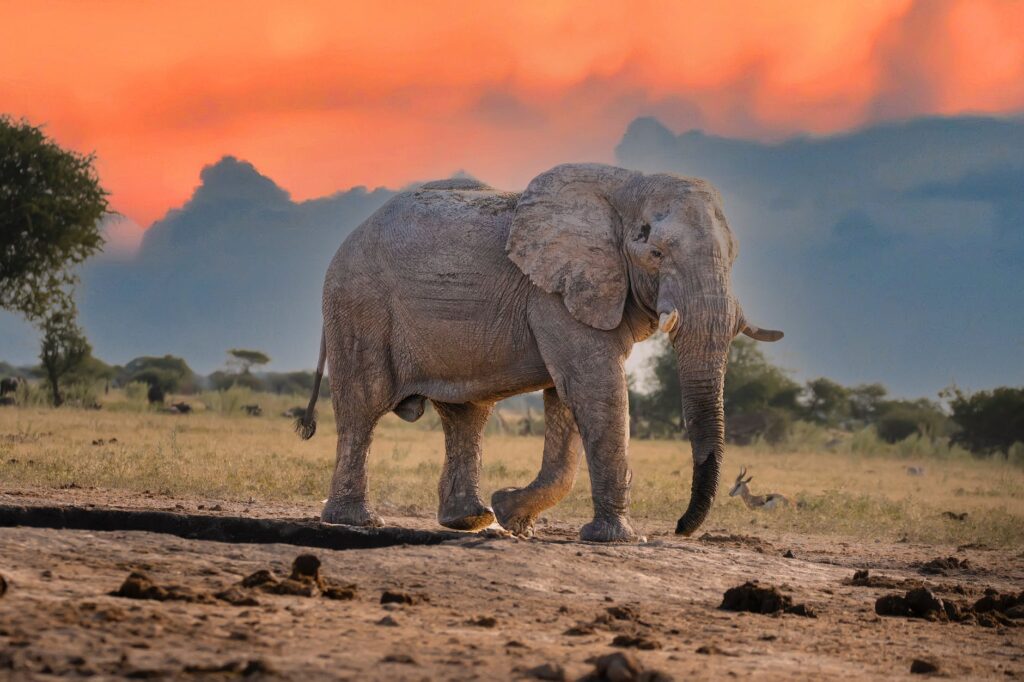Right now, the number of species coexisting in the world is the highest it has been in Earth’s entire life history. Unfortunately, we are also influencing the Earth more than we ever have. Our overconsumption and unsustainable use of resources have led to anthropogenic climate change. Our influence on the environment is consequently causing major biodiversity loss. This loss is happening at such an extreme rate that it can only mean one thing: we are in the midst of the sixth extinction event.
Throughout Earth’s timeline, there have been multiple large-scale die-offs. These large-scale die-offs are called extinction events. Nature is give and take, so the composition of life on Earth can change a lot. The Earth goes through cyclic periods of warming and cooling, which typically happen because of natural climate cycles, that can cause these composition changes. There are also cases, like with the dinosaurs, where natural disasters cause these changes.
Both cases can lead to extinction events that affect all living things. Unfortunately, due to the consequences of our overconsumption we are changing Earth’s timeline and have created an anthropogenic extinction event, known as the sixth extinction as indicated by the previous five extinction events noted in the fossil record.
How do we know we’re in another extinction event?
Extinction events are classified as a nonrandom, devastating loss of biodiversity that happens rapidly in terms of geological and evolutionary time. Of the 150,000 species assessed for the IUCN Red List, 28% are on the fast track to extinction. There are 717 documented cases of species extinction from the past 500 years, but researchers believe this number could be much higher.
Industry has altered our environment substantially. Because of the far-reaching influence industry and our misuse of resources have caused, we have changed the Earth’s natural climate cycles and caused an extreme acceleration of planetary warming. The living things on our planet don’t have the means to adjust to all of the sudden changes we have made. This makes it impossible for species to adapt to our changing climate; if they can’t adapt, they die.
All signs show we are experiencing global species extinction and vast declines in population numbers. It’s referred to as a “biological annihilation” because of the magnitude of this event. These trends of biodiversity loss share the characteristics of extinction events, so the consensus is that we are experiencing the Earth’s sixth extinction event.
What does the sixth extinction event mean for us?
The current state of our planet is shocking and the effect we’re having on all living things is truly saddening. Plants and animals are caught in the crossfire of our rapidly changing environment. It’s critical we act before things get even bleaker. We are only hurting ourselves because every species on Earth adds value. With the widespread decline of biodiversity, we are losing intricate ecological networks comprised of animals, plants, and microorganisms.
Extreme biodiversity loss inevitably leads to a loss of ecosystem services. Moral obligations to protect nature aside, we need ecosystem services to survive. We rely on our environment for food, carbon sequestering, water, climate regulation, and more. Without ecosystem services, we won’t stand a chance against climate change.
This sixth extinction event will have serious social, environmental, and economic consequences. In the end, our species’ ability to survive and have a future wholly depends on stopping this biodiversity loss. We must respect other species because our lives are entirely interconnected. Our planet’s ability to support life, including human life, has been shaped by life after all.
Is there any hope for the future?
Things do look grim in terms of maintaining our planet’s biodiversity, but there is always hope. It’s not over until it’s over, so the time to live differently and make more positive choices is now! We caused these issues and we have the power to flip the script.
We all need to contribute to lessening climate impacts to stop this extinction event before it’s too late. Changing perspectives and focusing on Traditional Ecological Knowledge is how we can become in line with our ethical duty of protecting the environment, not harming it. Let’s persevere and reevaluate what’s important! There is still life worth maintaining and appreciating.
References
Kolbert, Elizabeth. 2014. The Sixth Extinction: An Unnatural History. New York, Henry Holt and Company.

